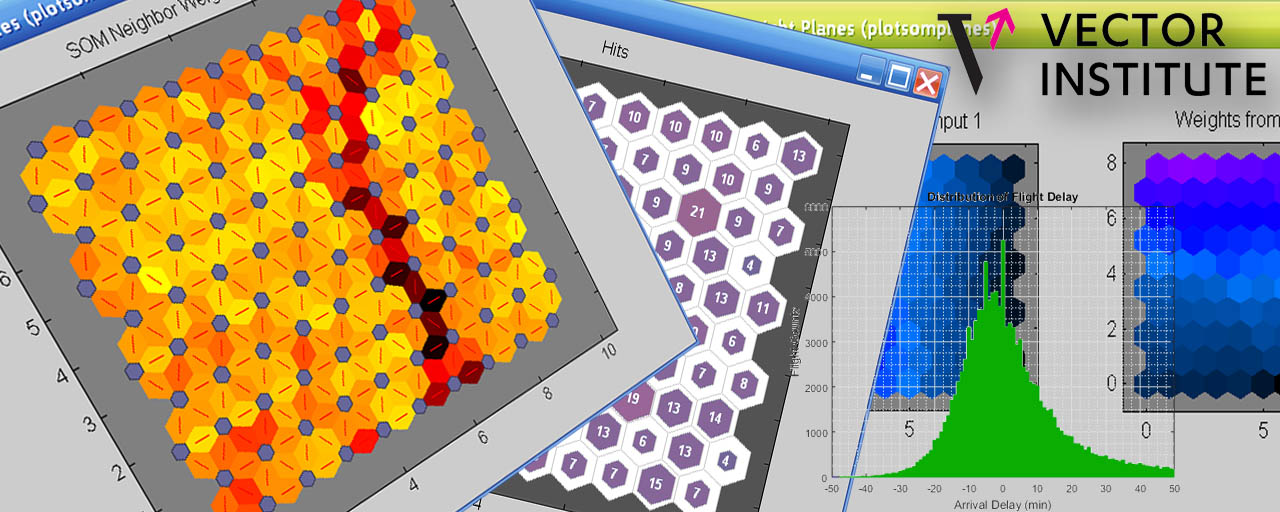Toronto Metropolitan University’s Department of Electrical, Computer and Biomedical Engineering offers a master’s degree (MEng) in Electrical and Computer Engineering with specialization in AI that provides students with the technical training and ethical awareness they need to be successful professionals in the AI field.
Nature of the Program
The current capacity of the program is 50 full-time master’s students per year. Admission is based on excellence and the following requirements:
Students admitted to the program will be required to take four core courses:
Four interdisciplinary electives will also be required in the areas of energy, sustainability, computer networks, digital media and urban development—which will be studied through an AI lense. Importantly, a course on the ethical implications of AI will also be offered (EE8010), covering topics such as inherent bias, fairness and accountability in research and application.
Vector Scholarships In Artificial Intelligence (VSAI)

- Apply and be accepted for full-time study in an AI-related master’s
program for the 2019-20 academic year in the province of Ontario that is:
- A) recognized by the Vector Institute; or
- B) in an AI-related discipline that offers individualized study paths that are demonstrably AI-focused
- Submit a 250-word (maximum) statement outlining the reason for pursuing a master’s in AI, relevant AI-related experience, and career aspirations. Statements must be submitted directly to the program to which the student has applied and which has offered the student admission.
- Acquire references from two referees, one of whom must be an academic. Reference forms must be submitted directly by the referee to the administrator of the program to which the student has applied and which has offered the student admission. Students must complete the top part of the form BEFORE emailing it to their referees.
Skills, Competencies and Experience Acquired By Graduation
Upon completion of the program, our graduates will be able to identity the requirements of an AI-driven system, analyze state-of-the-art AI techniques and apply them in a range of disciplines in order to contribute solutions to many of industry and society’s greatest challenges. Specifically, our students will gain a deep understanding of:
Careers Our Students Will Be Qualified For
The field of AI offers highly compensated, impactful employment opportunities across all services and sectors. Graduates of our program can expect to be qualified for many in-demand positions, including:
Experiential Learning
One of Ryerson’s strengths is combining theory with experiential learning and applied research. As such, a practicum is included as a mandatory part of the program. The practicum will present students with a real-world problem and call on them to conceptualize, develop and test a prototype solution. The project will be completed in teams of two to three students who will work directly with their professor and industry partners. In addition to the experiential opportunity, students will also benefit from department-led training in teamwork, collaboration, and conflict resolution—skills that will be essential to their success in the workforce. An internship program is also in development that would give our students the opportunity to work with Vector-affiliated companies and health-care partners.
More Information and Contact Info
If you have questions about the master’s degree with an AI concentration at Toronto Metropolitan University’s Department of Electrical, Computer and Biomedical Engineering, email us at gradinfo@ecb.torontomu.ca. For more information about graduate studies visit www.torontomu.ca/engineering-architectural-science/future-graduate/home/
